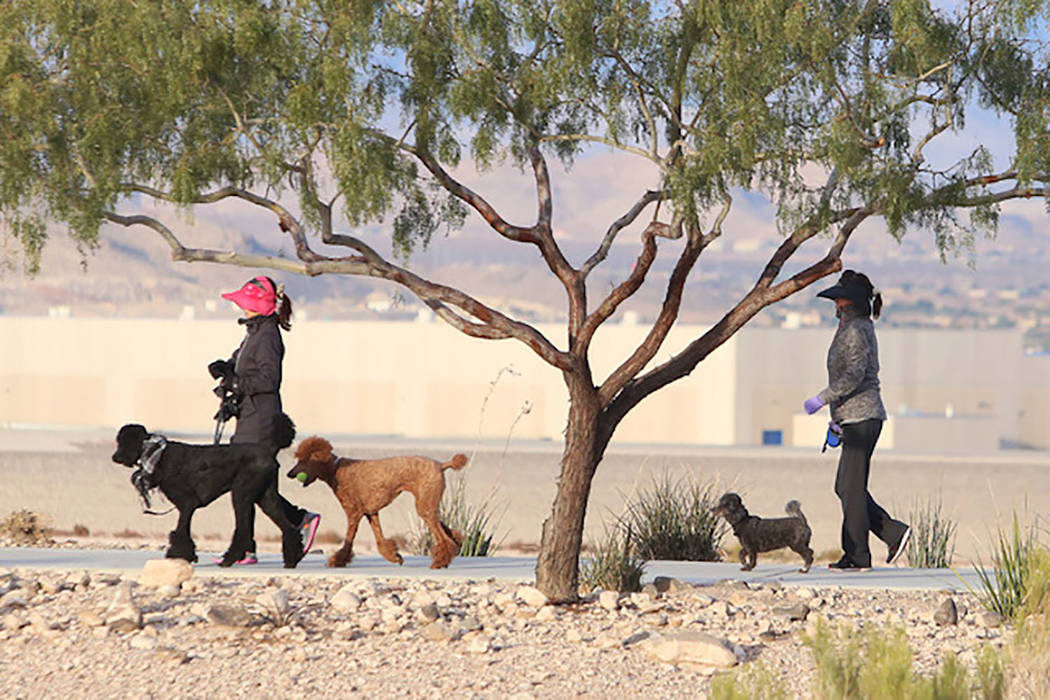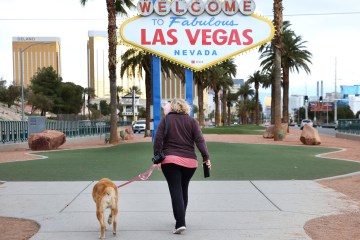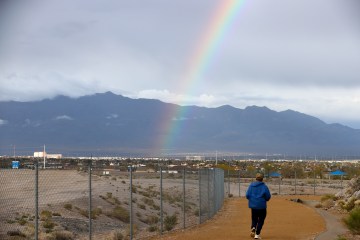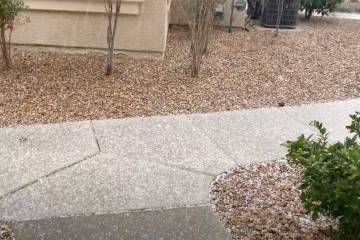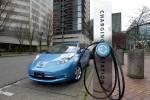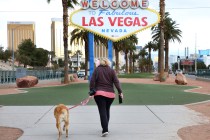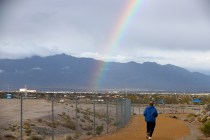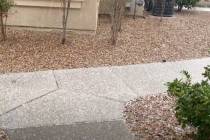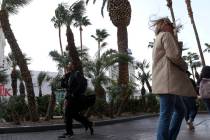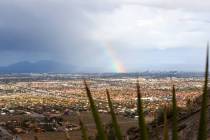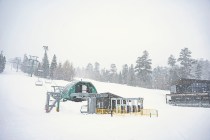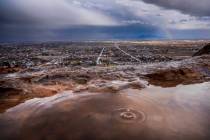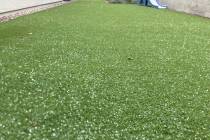How to prepare for freezing temperatures in Las Vegas
Winter is making an early arrival in the Las Vegas Valley and emergency management officials want residents to be prepared.
With low temperatures forecast to be near freezing or in the upper 20s overnight Wednesday night into Thursday morning, Clark County fire prevention and emergency management officials are offering advice to residents to help them deal with the early onset of cold weather.
“Residents and visitors can be surprised by near freezing temperatures at night this time of year,” said Deputy Fire Chief John Steinbeck, who oversees the Clark County Fire Department’s Office of Emergency Management. “It’s important to be especially careful if you are using space heaters, and to keep an emergency kit in your car that includes water, extra food and blankets in case you are traveling to nearby mountain regions.
Home plumbing is also an item for residents to focus on.
“We encourage people to take steps every fall to winterize their homes and pools to prevent pipes from freezing when overnight temperatures drop,” said building & fire code official Jerry Stueve, director of the Department of Building and Fire Prevention. “It’s also important to remind people never to use appliances like ovens to heat their homes.”
The Las Vegas Office of the National Weather Service expects early morning lows of about 33 degrees Wednesday and Thursday mornings. A freeze warning said temperatures could drop as low as 28 degrees in some locations.
A temperature of 32 degrees or less can damage vegetation and freeze pipes, causing them to burst. Cold temperatures also can result in frostbite and hypothermia. Officials advise residents to monitor local weather forecasts for information about changing conditions.
Tips also are recommended for dealing with winter weather in our region:
Winterize your home
Insulate walls and attic, caulk and weather-strip doors and windows.
Protect exposed pipes by wrapping them in insulation or layers of newspaper and then covering them with plastic to keep out moisture.
Turn off your outdoor sprinkler system. Wrap or cover hose bibs and exposed elements of your sprinkler system such as irrigation boxes and valves.
If freezing or near-freezing temperatures are forecast, run the water circulation system in your pool to prevent pipes from freezing. Cover exposed pool pipes.
Maintain fences, locks and other drowning-prevention barriers around pools to protect children and pets.
Follow manufacturer’s guidelines for maintaining pools when not in use during the winter months.
Heat safely
Operate space heaters according to manufacturer’s guidelines. A minimum of three feet from any item that could ignite is generally recommended.
Do not use extension cords with space heaters and unplug space heaters when not in use.
Do not use gas appliances such as ranges or ovens or clothes dryers to heat your home.
Maintain heating equipment and chimneys by having them cleaned and inspected each year.
Fireplaces should have open dampers to allow smoke and gasses to escape safely. Ashes should be discarded into water pails and soaked several hours before discarding.
Never use a portable generator, grill, camp stove or other gasoline, propane or natural gas or charcoal-burning devices inside your home. Always locate these units in outside areas away from doors, windows, and vents that could allow carbon monoxide to come indoors.
Install a carbon monoxide (CO) alarm that meets safety standards. Battery-operated CO alarms or plug-in CO alarms with battery backup are available.
Never use candles as a heating or light source. Have flashlights ready for use during a power outage.
Dress warmly
When outside in cold temperatures, dress to stay dry and warm. Wear warm, loose-fitting, lightweight clothing in layers. Clothing made of wool or synthetic fibers such as polypropylene offers more insulation than cotton. Outer garments should be tightly-woven, water repellent and have a hood.
Seek medical attention if you see signs of frostbite or hypothermia. Symptoms of frostbite include the loss of feeling and white or pale extremities. Signs of hypothermia include uncontrollable shivering, slurred speech, drowsiness and exhaustion.
Pets & cold weather
If temperatures are below 50 degrees in Clark County, dogs and cats kept outdoors should have additional clean bedding to keep them warm.
Keep an eye on water bowls to make sure drinking water does not freeze.
Bathe your pets as little as possible during cold spells. Washing too often can remove essential oils and increase the chance of developing dry, flaky skin.
Don’t shave your dog down to the skin in winter.
In general if it’s too cold for you, it’s probably too cold for household pets to be kept outdoors for long periods of time, especially if they are used to being indoors.
Winter driving
If going to or leaving a remote area, drive with a full tank of gas and a charged cell phone.
Before driving, dial 5-1-1 (in Nevada) or 1-877-NV-ROADS (1-877-687-6237) to check for driving conditions, chain requirements and road closures.
Visit www.GoMtCharleston.com for information about roads, weather updates and safety tips when visiting the Spring Mountains National Recreation Area during the winter months.
The popularity of Lee and Kyle canyons when snow is present can create public safety hazards. Visitors may experience temporary road closures along Nevada State Routes 156 (Lee Canyon Road), 157 (Kyle Canyon Road) and 158 (Deer Creek Road) because of traffic congestion and road conditions.
Use extreme caution while driving in winter storms with ice and snow. Drive slowly, accelerate gradually, and allow for greater braking distances.
Take time to clean off snow and ice from vehicle windows to increase visibility. Keep a shovel, a windshield scraper and/or a small broom in your vehicle.
If you are stuck in a vehicle in snow or cold weather, stay in your vehicle and wait for help. Run the engine about 10 minutes each hour to keep warm. Beware of carbon monoxide build up inside the car.



